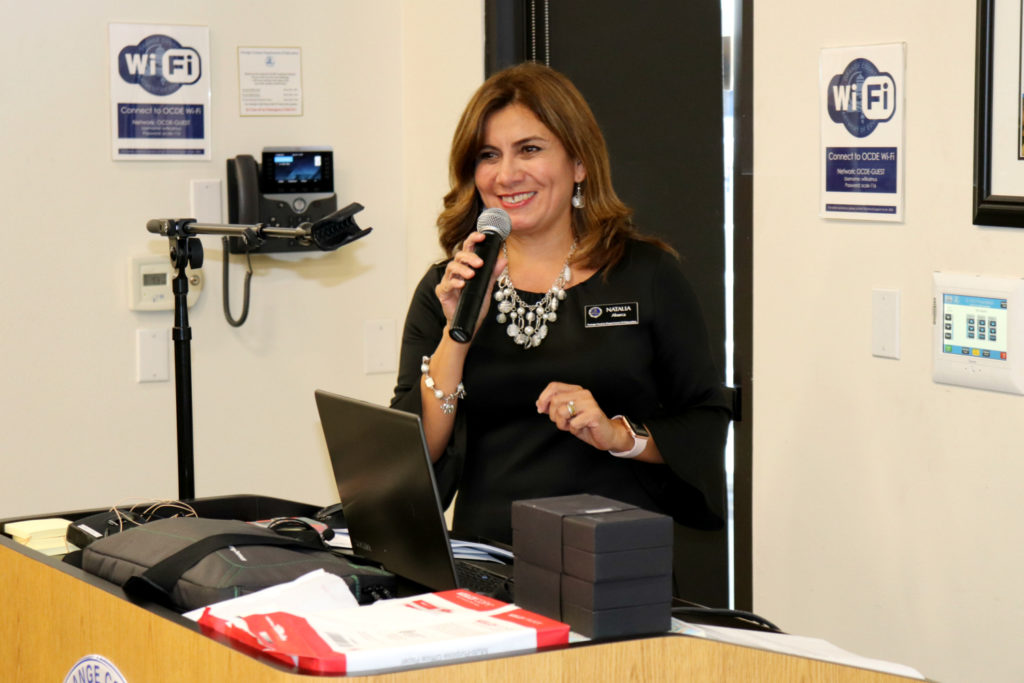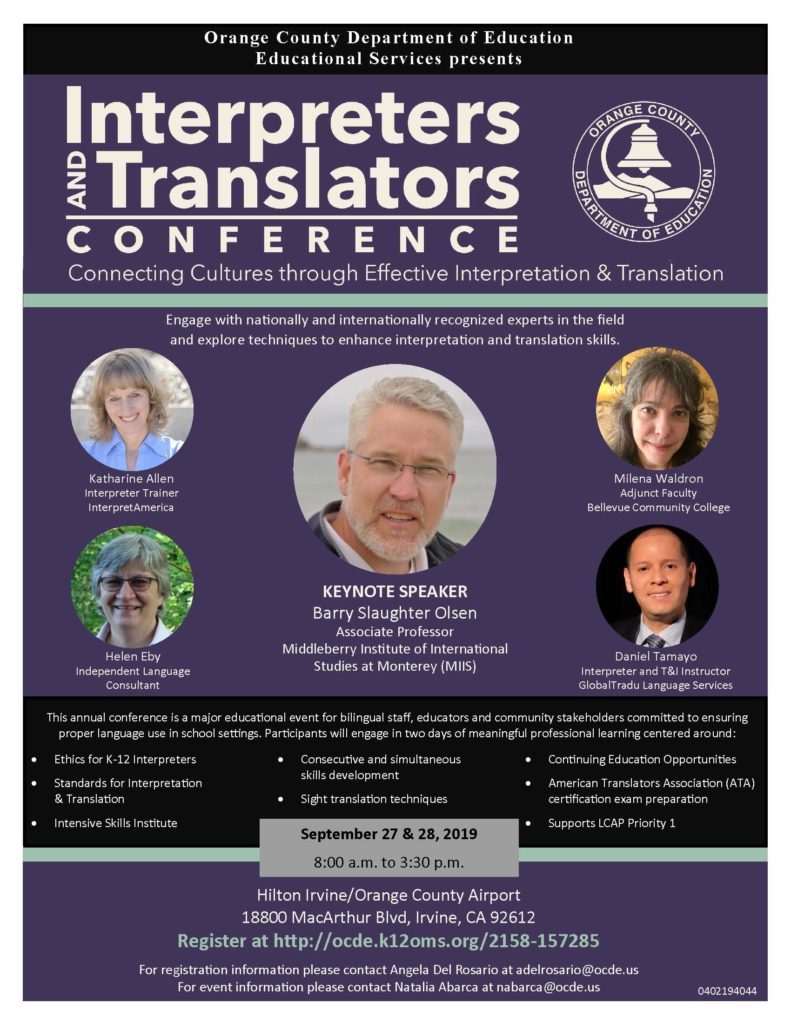OCDE’s lead language interpreter and translator has been featured in the latest issue of the ATA Chronicle, a national publication produced by the American Translators Association.
In an article titled “Educational Interpreting 101: It’s a Lot Harder than It Looks,” Project Liaison Natalia Abarca writes about her work building a countywide infrastructure for language services, including a professional network that provides multicultural and professional support for educators, parents and liaisons.
 “We not only strive to provide families in Orange County with equitable access to high-quality interpreting and translation services,” Abarca writes, “we also work to build collective capacity to help newcomer parents and families navigate the U.S. educational system.”
“We not only strive to provide families in Orange County with equitable access to high-quality interpreting and translation services,” Abarca writes, “we also work to build collective capacity to help newcomer parents and families navigate the U.S. educational system.”
You can read the article in the current issue on The ATA Chronicle’s website.
Also featured is Katharine Allen, a health care and community interpreter. She writes about the complexities of educational interpreting and how they compare to other specialized fields like mental health.
“In reality, educational interpreters routinely face demands on their skill sets every bit as complicated and nuanced as mental health, workers compensation, court, and conference interpreters, while typically operating without the necessary infrastructure,” she says.
Yet Allen cites OCDE as a standout example, serving a county that speaks 66 languages, including Spanish, which is spoken by a greater percentage of residents than English.
In her section, Abarca writes about arriving at OCDE in 2006 as a newcomer from Ecuador, eight years before she became project liaison.
“Even though I was a native Spanish speaker,” she says, “I felt like a foreigner who needed an interpreter to help me understand the unfamiliar slang and this new way of speaking. I had my own unique accent and few could place my country of origin.”
 “These early experiences with different dialects and languages made me ever more passionate about providing accurate language access to almost 500,000 students who attend Orange County’s multicultural schools,” Abarca writes.
“These early experiences with different dialects and languages made me ever more passionate about providing accurate language access to almost 500,000 students who attend Orange County’s multicultural schools,” Abarca writes.
In Orange County, she found an immense demand for translation and interpreting services. More than three-quarters of the local districts had monthly requests for interpreting and translations and 82 percent of those requests were for IEP meetings, which are part of the special education process.
Based on survey data, Abarca implemented a number of measures, including ongoing trainings for district-level employees, ethics guidelines for interpreters and an effort to standardize common educational terminology.
She also established an Interpreter of the Year Award recognition program and an annual conference to share new information, tools and best practices. The second annual event sold out in 2018, with 270 people representing nine California county offices of education, 19 Orange County school districts and 24 school districts from other counties.
The third annual Interpreters and Translators Conference will be held Sept. 27-28 at the Hilton Irvine Orange County Airport. For more information or to register, click on the graphic above or visit https://link.ocde.us/interpreters-translators.
